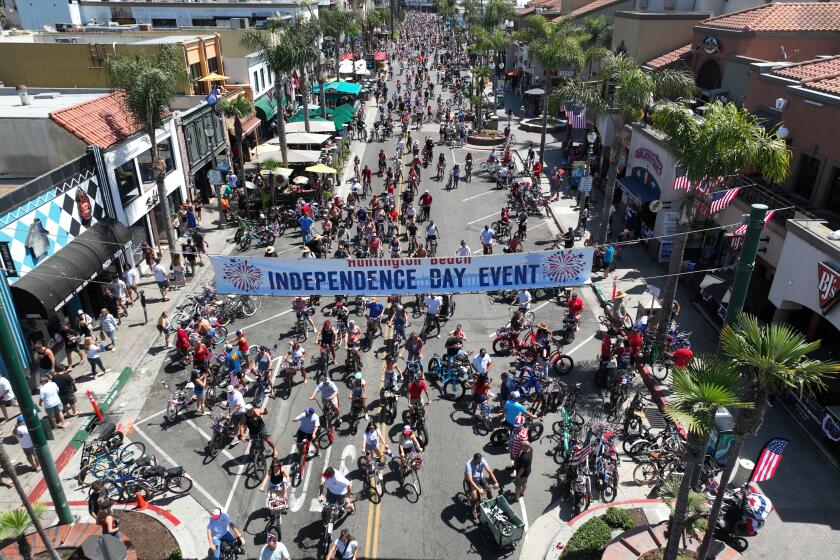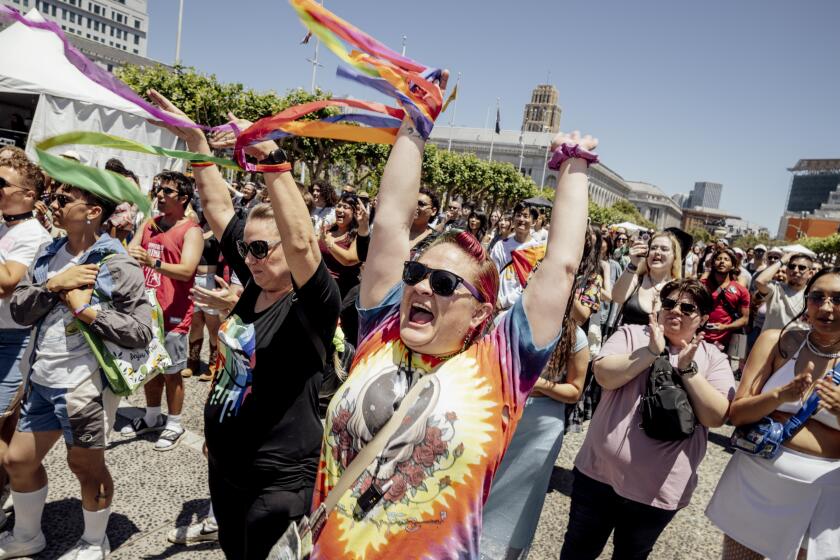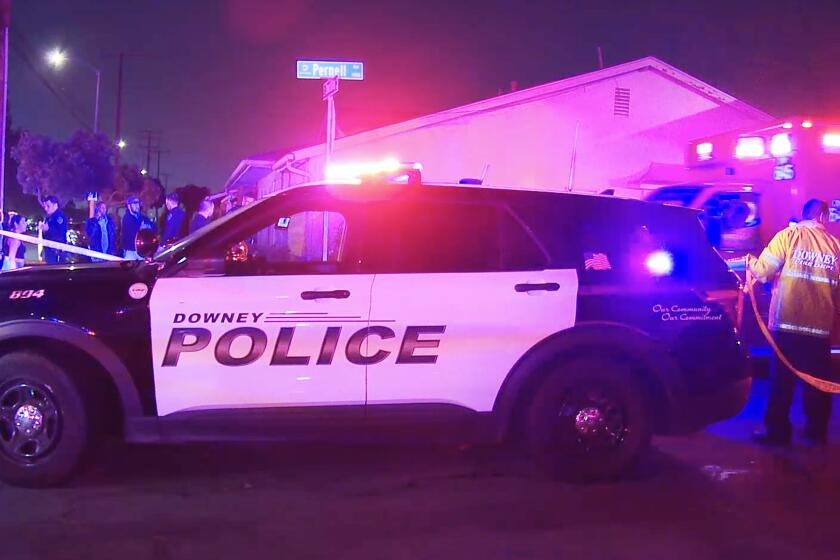Judge Tells of Police Forcing Her to Pavement
An African American judge from Virginia who is suing the LAPD for alleged racial profiling described in federal court Tuesday how police ordered her out of a car at gunpoint, then forced her to lie face down on the hot pavement while in handcuffs after a traffic stop in Venice.
“I was in shock,” said Judge Alotha C. Willis, a former criminal prosecutor who sits on the Juvenile and Domestic Relations Court in Portsmouth, Va.
“It was bad enough to be forced to lay on the ground. It never occurred to me that I would also be handcuffed,” said the 43-year-old jurist.
Also subjected to so-called “felony prone” takedowns were Willis’ husband, Wayne Person, 50, a civilian contract manager for the Navy, and a mutual friend, Sheryl Crayton, 52, assistant principal at a Carson middle school, both of whom are also black.
Person and Crayton are co-plaintiffs in the civil rights suit, which seeks unspecified monetary damages against the officers involved in the episode as well as top Los Angeles Police Department officials.
Pulled Over by Cruisers
Crayton had just taken the visiting couple on a tour of Venice Beach on July 3, 1999, and was driving them to a restaurant in Marina del Rey for lunch when she was pulled over by two Los Angeles police squad cars.
At least nine officers and a police helicopter eventually took part in the incident.
Arresting officers testified that they had originally intended to ticket Crayton for making an illegal turn onto Pacific Avenue.
But they said they decided to execute a felony stop when a computer check with the Department of Motor Vehicles indicated that the license plate on Crayton’s 1998 Volvo was registered to another car.
It later was discovered that the DMV had sent Crayton the wrong set of plates.
By the time the glitch was discovered, however, Willis, Person and Crayton had been subjected to a humiliating and frightening experience, they said. They contend that they were targeted because they are black.
Crayton, the first person ordered out of the car, said she looked up and saw four police officers pointing shotguns at her.
As they shouted at her to drop to the ground, she said, she raised her hands and plaintively asked again and again, “What’s wrong? What did I do?” She said the only answer she got was, “Get down on the ground.”
“I was scared, I was shocked, I just wanted to know what I did,” she continued, wiping away tears as she recalled the incident.
Crayton said she alternated between lying face down and trying to sit on the dirty street, because the hot asphalt burned her skin. She was wearing shorts and a sleeveless blouse at the time, she said. A police report described her conduct as uncooperative.
Frisked for Weapons
The three plaintiffs estimated that they were on the ground about five minutes before they were helped to their feet, still handcuffed, and moved to a sidewalk, where they were frisked for weapons.
Person testified that an officer who patted him down slammed his testicles.
At another point, he said, he tried to volunteer information but was interrupted by a white officer who told him, “Shut up, boy. You speak when you’re spoken to. I’m the boss here.” He said he took that as a racial slur.
However, Assistant City Atty. Don Vincent said during cross-examination that Person did not cite the “boy” remark during an interview by a police sergeant later that night when the plaintiff registered a complaint about his treatment.
Person said that after a while, another officer announced loudly that “the DMV [messed] up.” A few minutes later, officers removed handcuffs from the trio and allowed them to leave.
Before departing, Person testified, he turned to a white officer and said, “You all have a problem out here. You can’t stand to see three black people driving in a decent car.”
Parks Also Testified
Last week, the plaintiffs’ attorney Stephen Yagman called former LAPD Chief Bernard C. Parks to the stand to testify about the department’s policies regarding racial profiling.
Parks said the officers’ conduct in this case was “inappropriate” if they ran the car’s license plates only because the occupants were people of color.
Parks also testified that Willis’ complaint prompted the then-chief to order a review of procedures used during felony stops. Parks said he concluded that no change in policy was required because officers are trained to employ a range of options short of “proning out” suspects.
The case is being heard by a jury in the courtroom of U.S. District Judge Christina A. Snyder.
More to Read
Start your day right
Sign up for Essential California for news, features and recommendations from the L.A. Times and beyond in your inbox six days a week.
You may occasionally receive promotional content from the Los Angeles Times.






